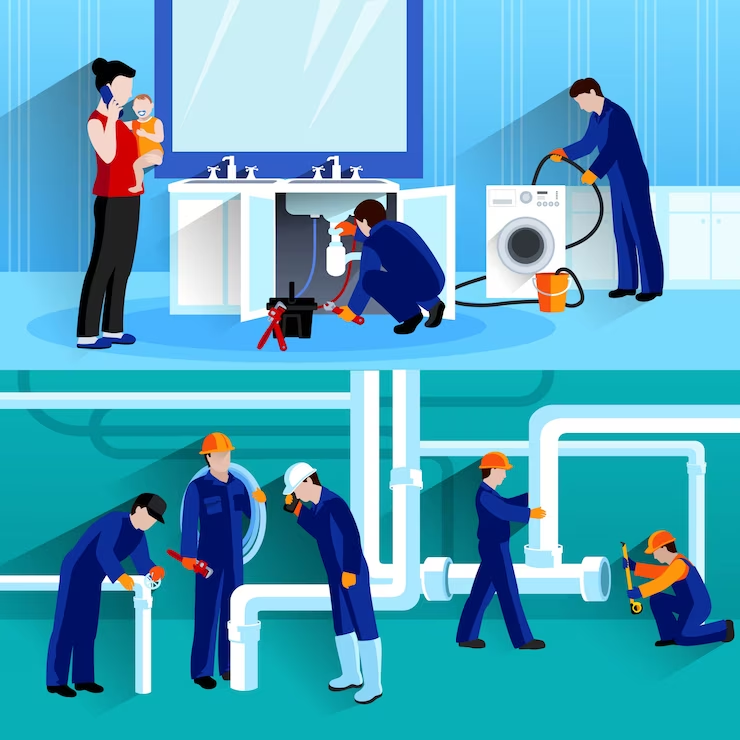Plumbing is an essential aspect of our homes and businesses, and from time to time, plumbing issues may arise that need attention. While it's always advisable to hire a licensed plumber for complex plumbing tasks, there are certain plumbing tasks that can be done without a license in many jurisdictions. In this article, we'll explore what plumbing work you can typically tackle on your own without the need for a professional license.
Minor Repairs and Maintenance
- Fixing Leaky Faucets: Repairing a leaky faucet is a common DIY task. It usually involves simple tasks like replacing a worn-out washer or cartridge.
- Unclogging Drains: Clearing minor drain clogs using a plunger or a chemical drain cleaner is typically considered DIY-friendly. However, exercise caution with chemical cleaners, as they can be harmful if misused.
- Replacing Toilet Flappers: When your toilet keeps running, it's often a result of a worn-out flapper. Replacing it is a straightforward DIY task.
- Replacing Showerheads: Swapping out an old showerhead for a new one is a simple task that doesn't require a license.
Installing Plumbing Fixtures
- Installing a Faucet: If you're upgrading your sink faucet, you can usually handle the installation yourself, as long as you follow the manufacturer's instructions carefully.
- Installing a Toilet: Installing a new toilet can be a DIY project, but it's essential to ensure a proper seal to prevent leaks.
- Replacing a Garbage Disposal: Replacing a garbage disposal unit typically involves basic plumbing and electrical work, but it's often manageable for a homeowner with some DIY experience.
Basic Maintenance Tasks
- Insulating Pipes: Adding insulation to exposed pipes to prevent freezing in cold weather is a task that many homeowners can do themselves.
- Checking for Leaks: Regularly inspecting your plumbing for leaks and addressing them promptly can prevent more extensive issues down the road.
What Requires a Licensed Plumber?
While you can handle many plumbing tasks on your own, some jobs are best left to licensed plumbers due to their complexity and potential for safety hazards. Here are tasks that typically require a licensed plumber:
- Major Pipe Installations: Installing new water supply lines or sewer lines usually requires the expertise of a licensed plumber.
- Water Heater Installation: Replacing or installing a water heater, especially gas-powered ones, is typically a job for a licensed professional.
- Sewer Line Repairs: Dealing with sewer line issues, such as blockages or leaks, is complex and necessitates a licensed plumber's skills.
- Septic System Work: Any work related to septic systems or sewage treatment usually requires a licensed plumber due to sanitation and environmental considerations.
- Backflow Prevention Device Installation: Installing and testing backflow prevention devices is a specialized task that licensed plumbers are trained for.
The Importance of Local Regulations
It's crucial to understand that plumbing regulations and licensing requirements can vary by location. What you can do without a license in one area might be restricted in another. Always check your local plumbing codes and regulations before embarking on any plumbing work to ensure compliance with the law.
While minor plumbing tasks can often be handled by homeowners, when in doubt or when dealing with complex plumbing issues, it's best to consult a licensed plumber. They have the knowledge and experience to tackle challenging problems while ensuring your plumbing system remains safe and up to code.

